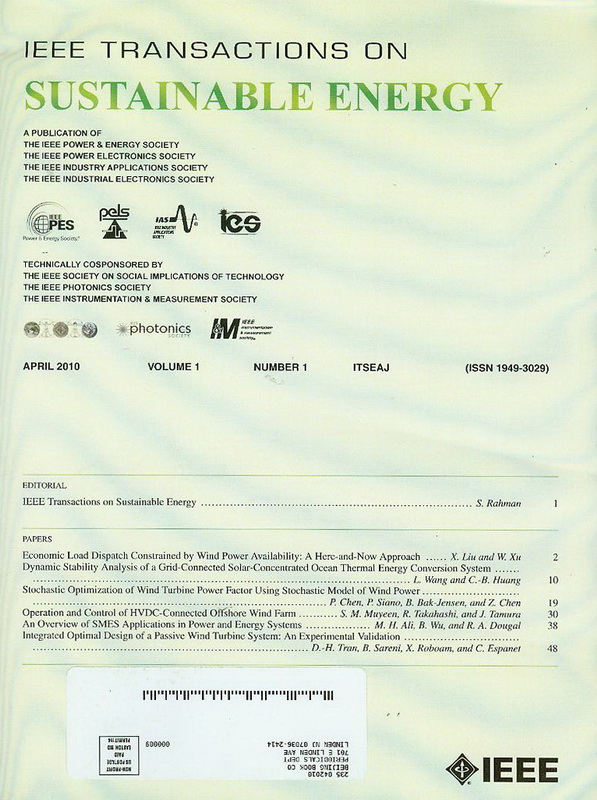Approximate Optimal Energy Management of Thermal-HESS System for MIMO Fuzzy Logic Controller Based AGC
IF 8.6
1区 工程技术
Q1 ENERGY & FUELS
引用次数: 0
Abstract
Compared to one-type of energy storage device, hybrid energy storage systems (HESSs) offer benefits for Auto generation control (AGC) command tracking and can reduce investment in energy storage. Traditional control method, although effective in meeting the matching of AGC commands at a specific moment, often lacks coordination across multiple time intervals, resulting in frequent and irregular charging/ discharging which reduces the overall lifetime. To address this, this paper presents an approximate optimal operation strategy for Thermal-HESS system, aiming to enhance the AGC performance of the generating unit and improve the energy management capability of the HESSs. Firstly, an auto-adjust Markov Chain prediction method is proposed to forecast the power demand of the AGC command tracking to determine power demand's tendency. Secondly, a stochastic model predictive control (SMPC)-based optimal model, which considers the current step and cost-to-go function, is proposed. However, the SMPC based model is multiple-step optimal operational problem, which will increase the computational burden of the controller. Therefore, this paper further designs a Multiple-Input-Multiple-output (MIMO) fuzzy logic controller to approximate the optimal alternative to the cost-to-go function of SMPC model, meeting the computational and application requirements more effectively. Finally, numerical case studies are conducted to demonstrate the effectiveness of the proposed method in AGC command tracking and HESSs energy management.基于AGC的MIMO模糊控制器热- hess系统近似最优能量管理
与单一类型的储能设备相比,混合储能系统(hess)具有自动发电控制(AGC)命令跟踪的优点,并且可以减少储能投资。传统的控制方法虽然能有效地满足特定时刻AGC指令的匹配,但往往缺乏多个时间间隔的协调性,导致充放电频繁且不规律,降低了整体寿命。针对这一问题,本文提出了一种热力- hess系统的近似最优运行策略,旨在提高发电机组的AGC性能,提高hess的能量管理能力。首先,提出一种自动调整马尔可夫链预测方法对AGC指令跟踪的功率需求进行预测,以确定功率需求的变化趋势;其次,提出了一种考虑当前步长和剩余成本函数的基于随机模型预测控制的最优模型;然而,基于SMPC的模型是多步最优操作问题,这将增加控制器的计算负担。因此,本文进一步设计了一种多输入多输出(MIMO)模糊逻辑控制器,以逼近SMPC模型的cost-to-go函数的最优替代方案,更有效地满足计算和应用需求。最后,通过数值算例验证了该方法在AGC指令跟踪和hess能量管理中的有效性。
本文章由计算机程序翻译,如有差异,请以英文原文为准。
求助全文
约1分钟内获得全文
求助全文
来源期刊

IEEE Transactions on Sustainable Energy
ENERGY & FUELS-ENGINEERING, ELECTRICAL & ELECTRONIC
CiteScore
21.40
自引率
5.70%
发文量
215
审稿时长
5 months
期刊介绍:
The IEEE Transactions on Sustainable Energy serves as a pivotal platform for sharing groundbreaking research findings on sustainable energy systems, with a focus on their seamless integration into power transmission and/or distribution grids. The journal showcases original research spanning the design, implementation, grid-integration, and control of sustainable energy technologies and systems. Additionally, the Transactions warmly welcomes manuscripts addressing the design, implementation, and evaluation of power systems influenced by sustainable energy systems and devices.
 求助内容:
求助内容: 应助结果提醒方式:
应助结果提醒方式:


